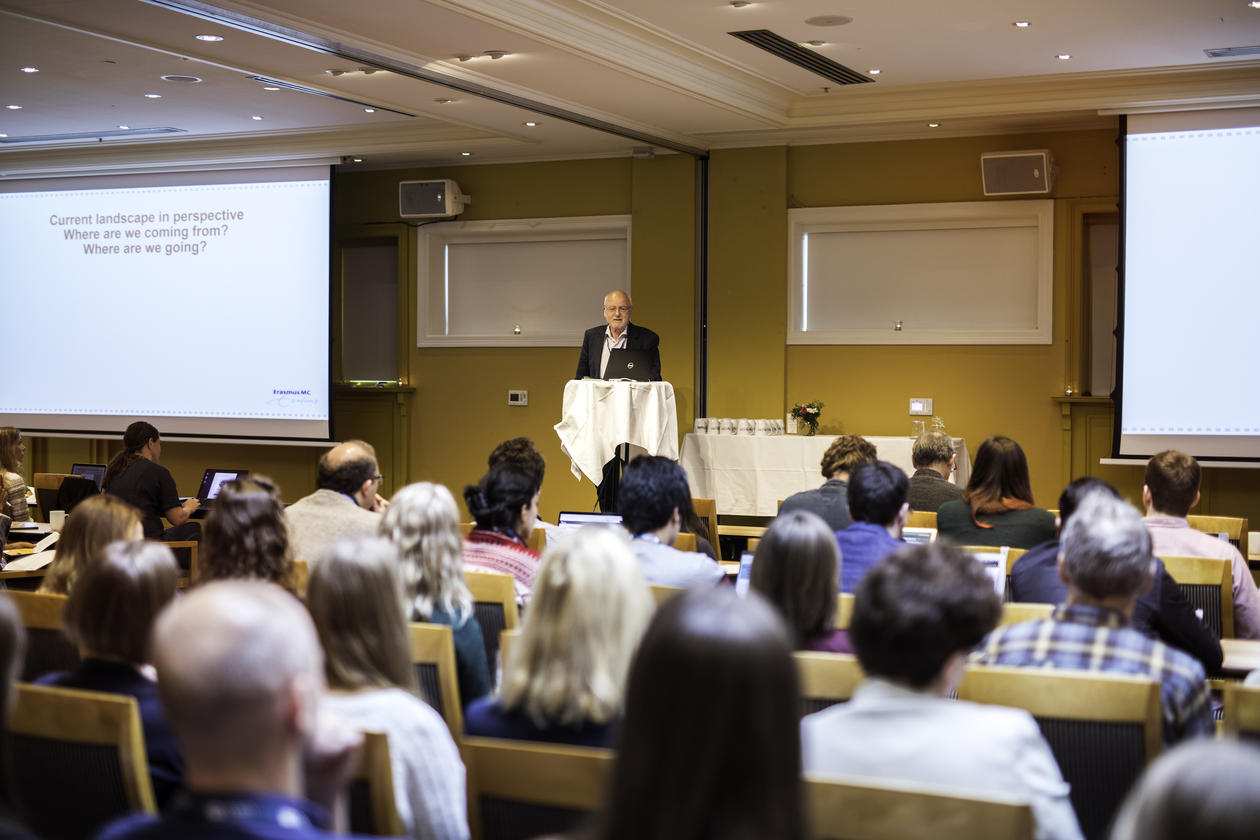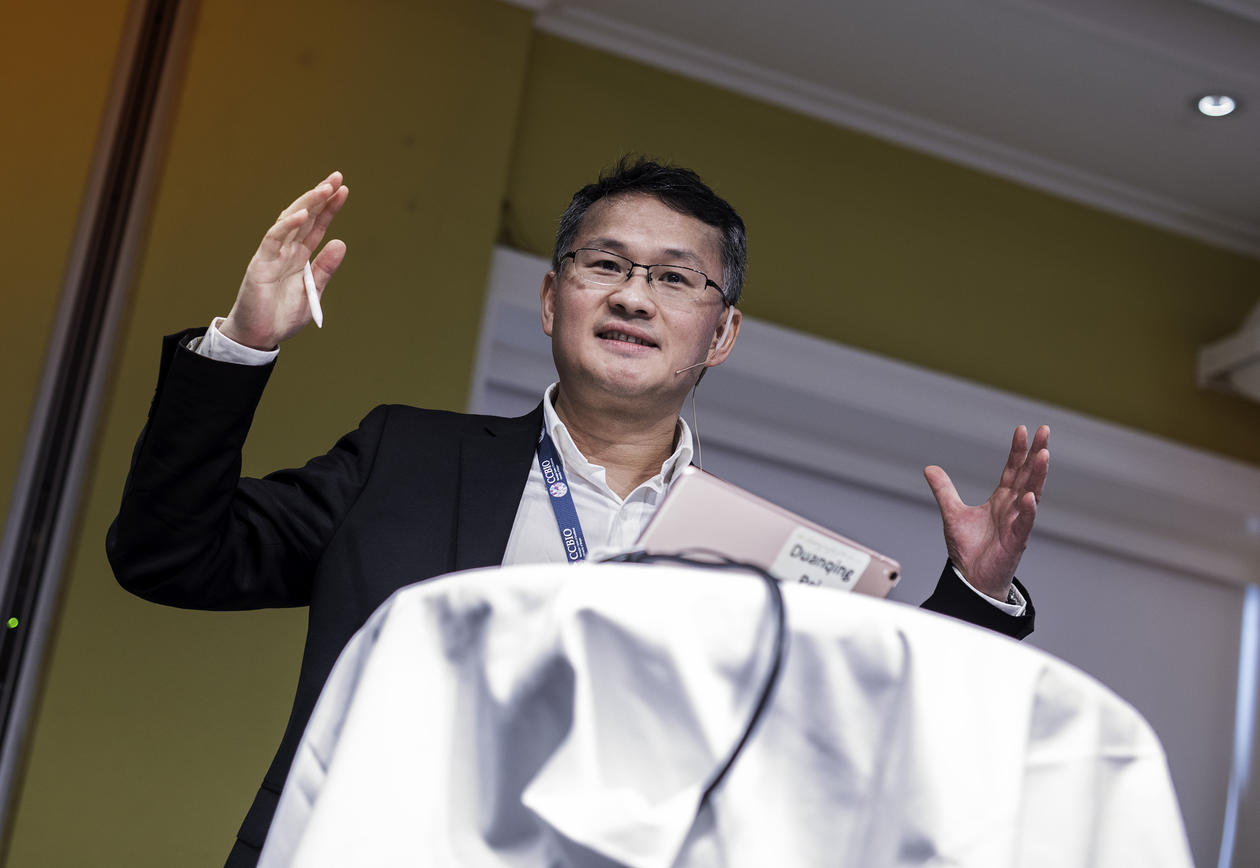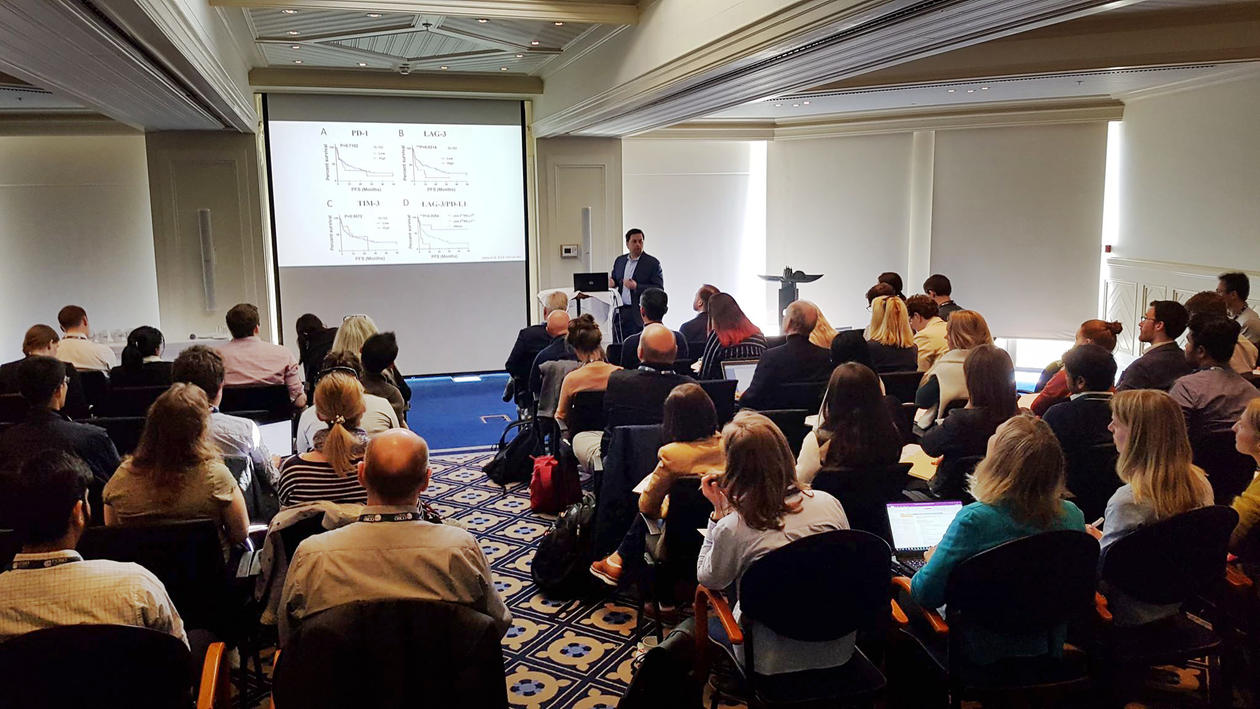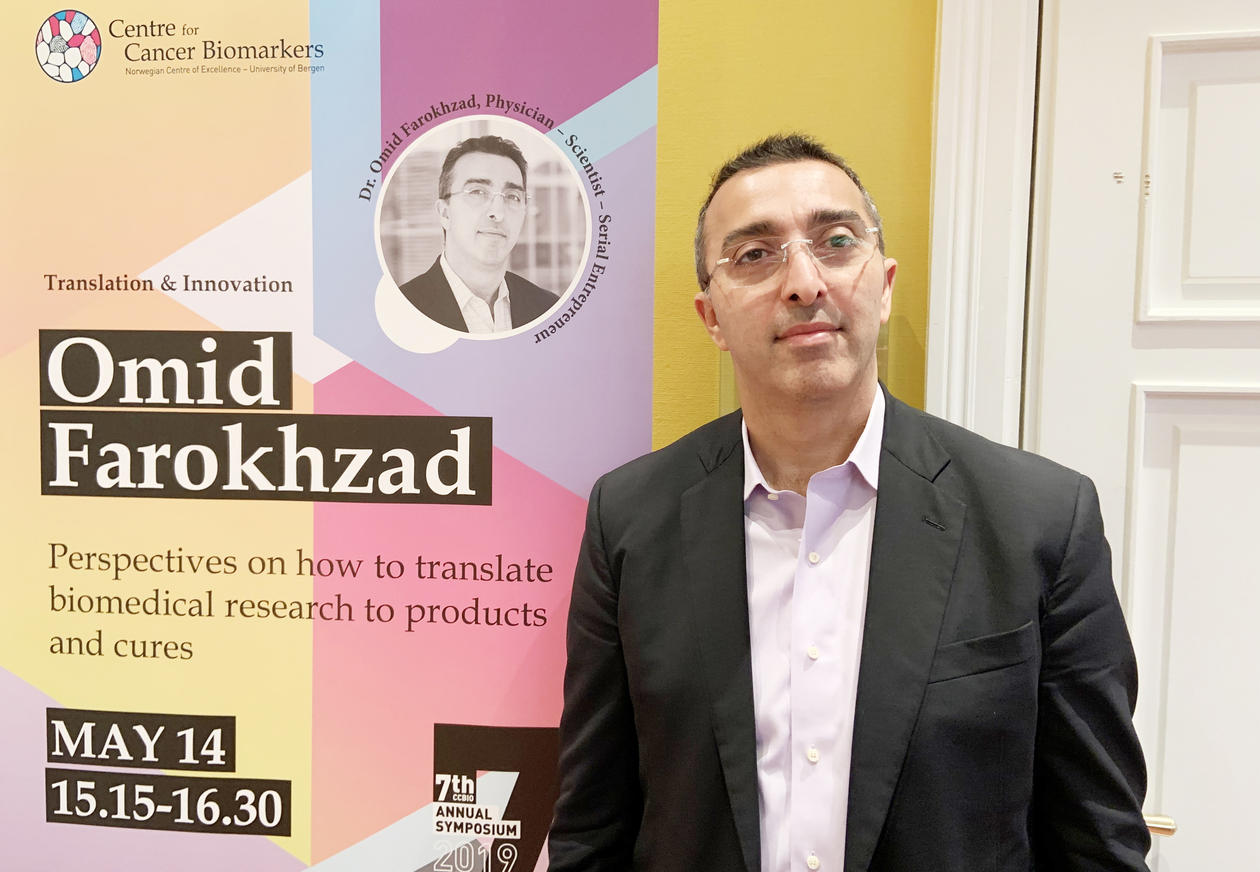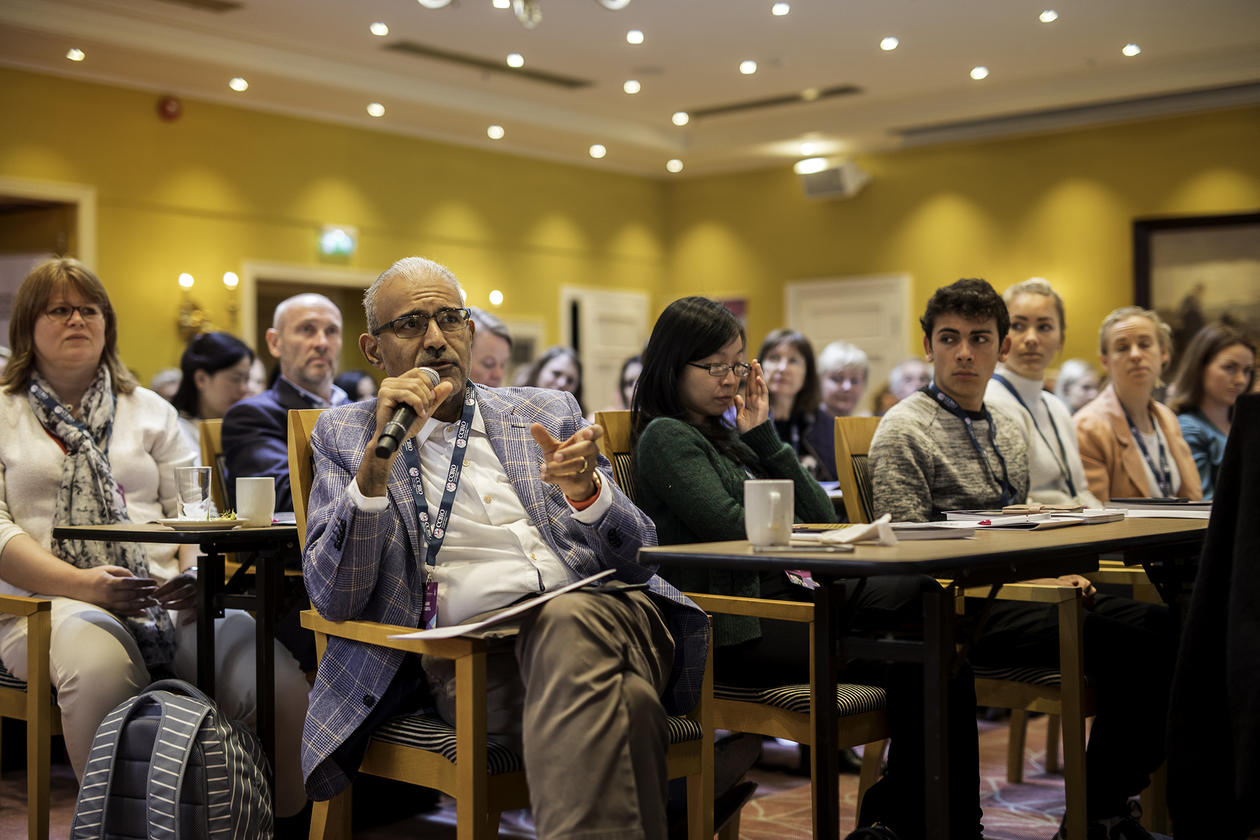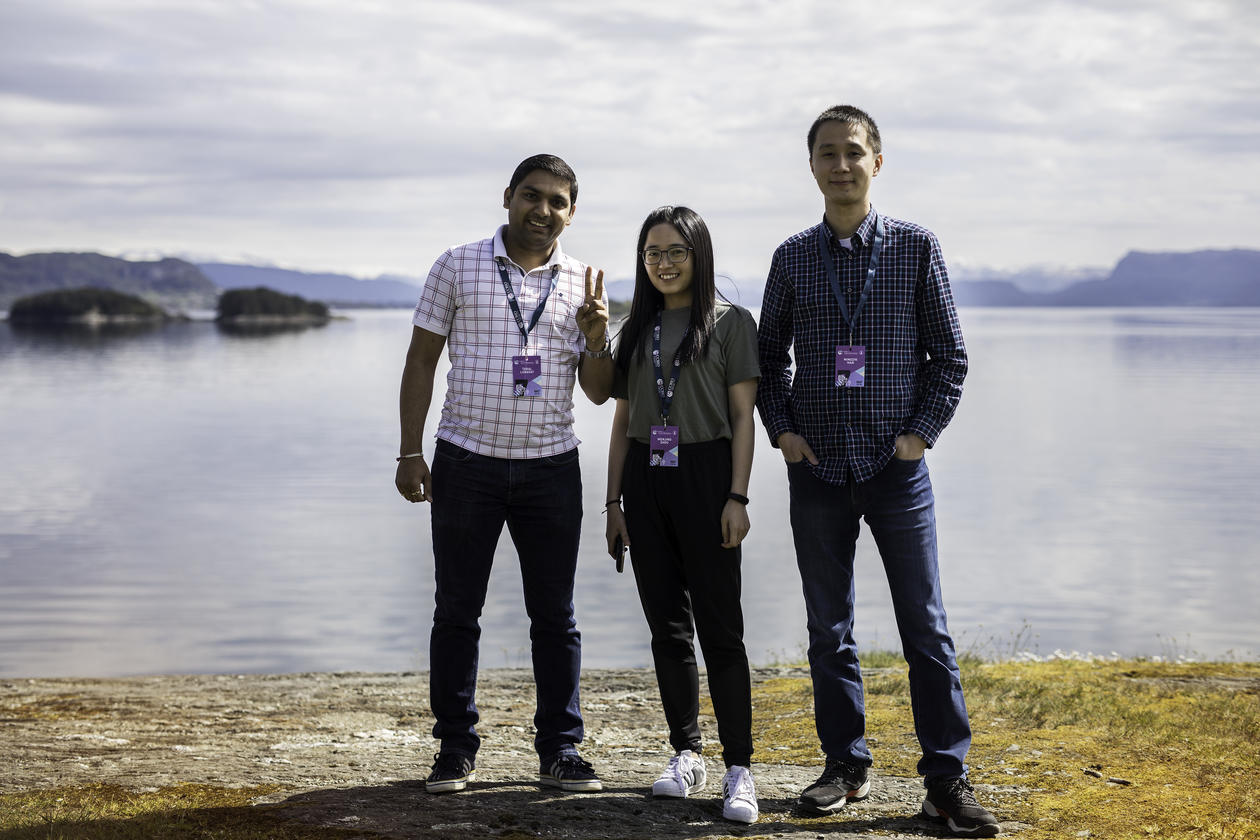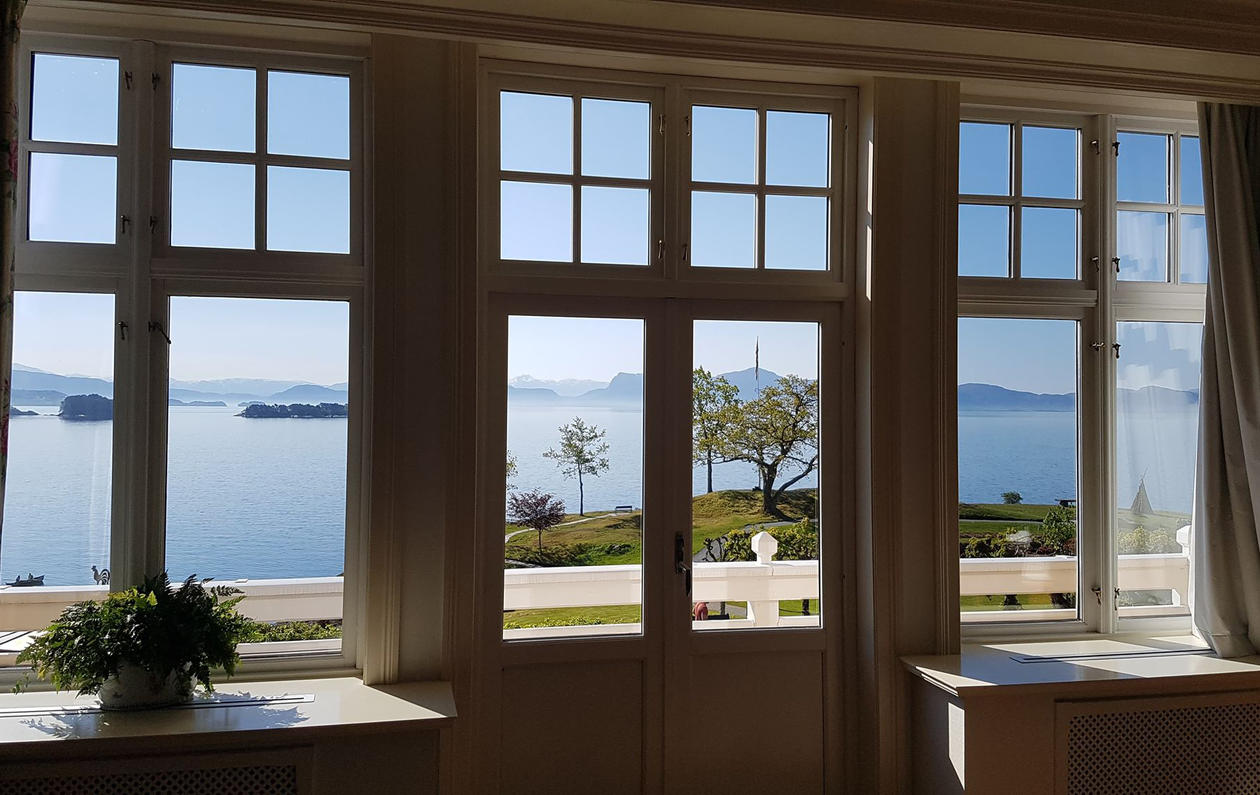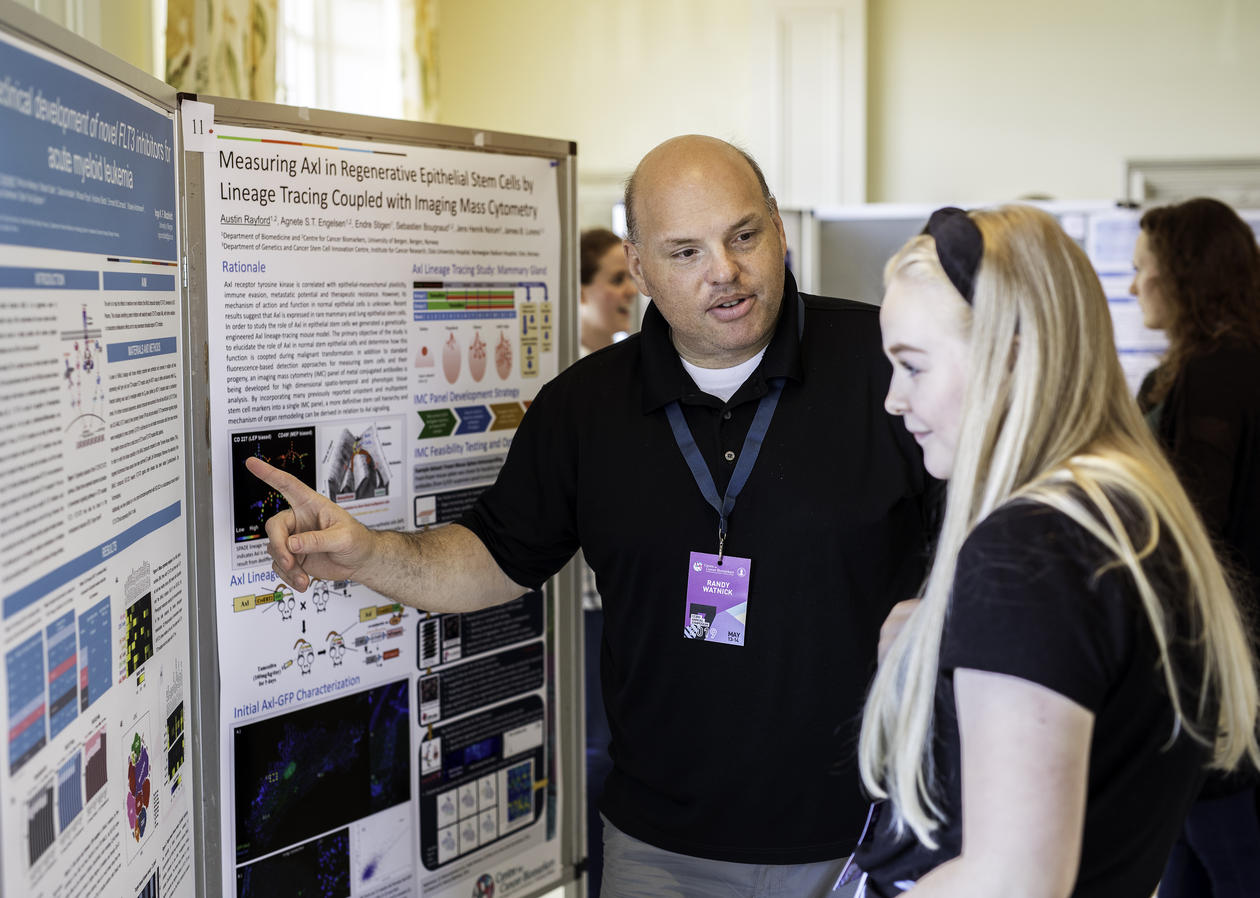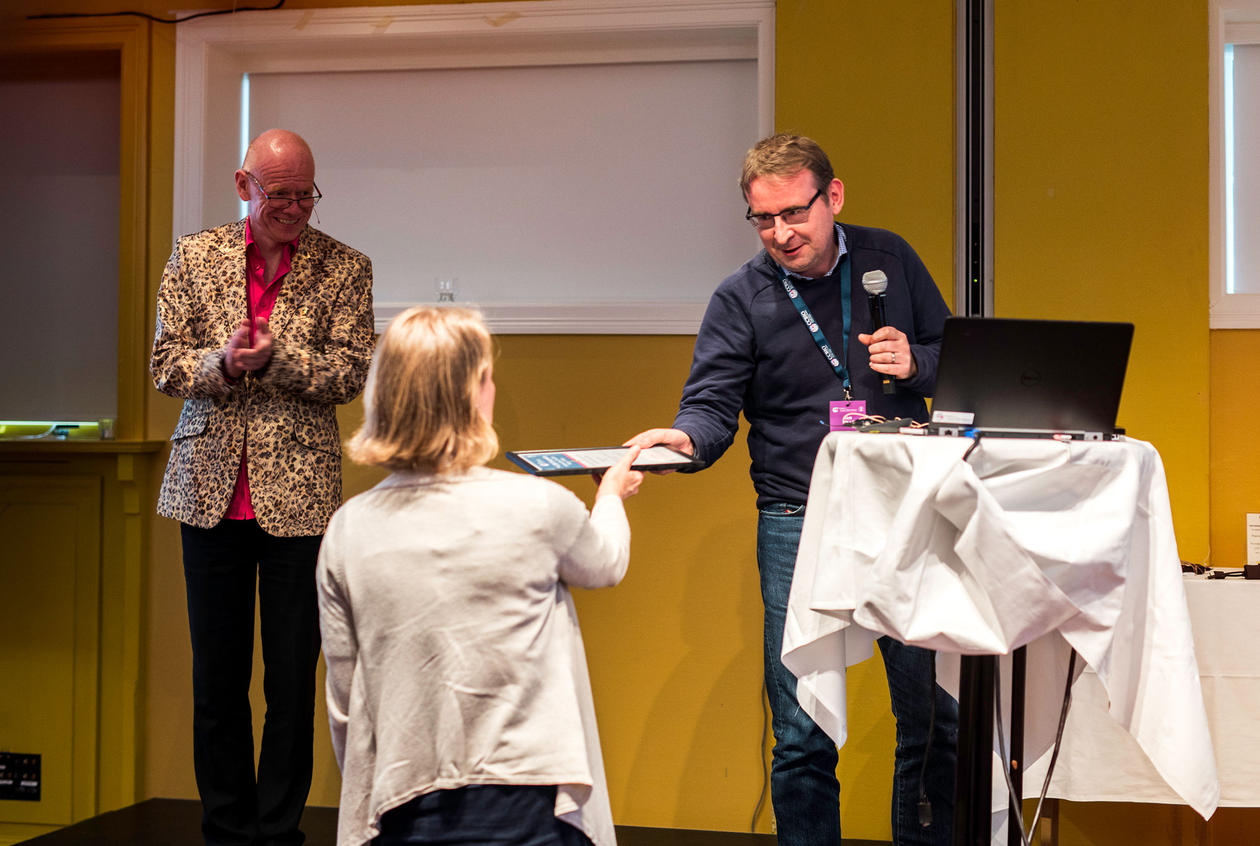CCBIO's 7th Annual Symposium (2019)
World leading cancer experts met at Solstrand: International top notch cancer researchers met at Solstrand to present their work at CCBIO's annual symposium.

Main content
The Centre for Cancer Biomarkers (CCBIO) invited for the 7th time researchers to their Annual Symposium on May 13 and 14 at Solstrand Hotel close to Bergen (Norway). Top scientists from all over the world came to discuss recent advances in cancer research with the 200 conference participants. The day prior to the annual symposium, CCBIO also hosted a satellite symposium, this year on the topic Deep Tissue Pofiling.
"With the broad range of presentations at these two symposia, there should be something to learn and bring home for everyone in the audience, and for the CCBIO research groups as well," CCBIO Director Lars A. Akslen explains.
This year, topics have ranged from calculating the risk of breast cancer through genetic tests, to drug development and innovation. (See program.)
Deep Tissue Profiling
"At our satellite symposium, the significance of tissue context and topography was discussed. Such information is needed to advance the field of omics studies, through techniques such as imaging mass cytometry. The issue is location, location, location", says Akslen. "It was a huge inspiration to be present, and I was happy to observe intense discussions and networking during this meeting. The good vibrations continued throughout the main symposium. It is a privilege to host such outstanding scientists, presenting their latest work on different topics. This soil is indeed important for our seeds to grow in an excellent way," he concludes.
CCBIO's scientifically responsible for the Hyperion Imaging System, Senior Researcher Sonia Gavasso, did the closing words of the Satellite Symposium on Deep Tissue Profiling, and was very happy with the event. "Adopting concepts from other disciplines to understand complex tumor biology was a central theme at the CCBIO Satellite Symposium," she says. "A lively discussion ensued on neighborhoods within tumors in terms of ecosystems, immunology, microenvironments, crime scenes, patterns, segmentation and data analyses," she continues. "Kurt Schalper discussed the “window of opportunity for immune therapy” and the importance of functional markers to identify the responsive state of immune cells within tumors. Hamid Raza Ali exemplified complex data analysis at the single cell level of tumor ecosystems and the implications of cellular states and microenvironments to align tumor biology with therapeutic interventions to advance precision oncology. Vision, technology and action are deep-rooted in CCBiO and the satellite symposium was the perfect arena for inspiration to further our understanding of tumor biology," she concludes.
Innovation
One of the invited keynote speakers on the issue of innovation, Professor Omid Farokhzad at Harvard Medical School, was concerned with turning academic innovations into medical products and technologies with great impact on lives and society. He was encouraged to provide 3 tips on how to make your ideas come to life:
- The most important thing is that you should go after solving important and big problems.
- If you do so, usually the scientific community rewards you with a high impact publication, providing validation in a peer reviewed process.
- Protect your innovation by filing patents before you publicly disclose your findings, and then you can get investors interested in your ideas and add the capital you need to advance your ideas and concepts further.
"Academic ideas are in nature risky, and a majority of them will fail. Investors however knows that this is risk capital with a chance of failure, but also with a chance of being enourmously successful, exceeding the losses in the long run," Farokhzad explains.
Balance and nuance
In his closing remarks, CCBIO Principal Investigator Roger Strand suggested that concepts of balance and nuance characterized many of the sessions.
"While the individual presentations all offered novel contributions in terms of methods and results, most presenters also emphasized the size of the challenges that we are faced with," Strand says. "For every gene or signaling pathway identified in a particular cancer, it seems that we also learn ever more about the almost endless variation, heterogeneity and biological complexity manifested by that cancer," he continues.
"Marta Bertolaso summarized this in her presentation Models and explanations in cancer research as "a problem of perspective, and not a problem of getting more data". In this sense, CCBIO and its symposia offer opportunities for intellectual exchange that may contribute to our scientific understanding of cancer," Strand concludes.
Broad-ranging poster sessions
The poster sessions have become popular attractions during the symposium, this year with 41 posters and 53 poster presenters. As the posters covered a broad range of cancer research, two poster committees were appointed from CCBIO’s international affiliated researchers. One for basic medical research posters (Randy Watnick and Arne Östman) and one for clinical research posters (Hani Gabra and Ian Mills). They had the tough job of selecting 2 winners in each category:
Category of basic medical research:
Wenjing Zhou with the poster «Delineating the invasive component of human brain tumors using brain organoids»
Kjersti Davidsen, Sturla Magnus Grøndal and Noelly Madeleine with the poster «AXL inhibition improves immunotherapy by targeting local and systemic tumor-myeloid crosstalk»
Category of clinical research:
Magnus Blø with the poster «BGB149, a novel fully humanized clinical stage anti-Axl function blocking antibody»
Havjin Jacob with the poster «Radiogenomic signature in endometrial cancer predicts aggressive disease»
Congratulations to the winners, and also a great thanks to all other poster presenters for interesting and exciting work!
Excellent development
CCBIO has been a Center of Exellence for 6 years, and Lars A. Akslen is happy to report excellent development within several of the center’s projects since the startup, both when it comes to basic research and implementation into patient treatment.
"There have, for example, been great advances within immune therapy, which was almost non-existent when we started out," Akslen says. "We have also seen improvements in understanding the cancer machinery, as well as in targeted diagnostics both when it comes to risk of cancer development, and diagnostic mapping of the tumors themselves," Akslen continues.
We encourage all to keep following the development of the center, and save the date for the 8th CCBIO Annual Symposium, May 12-13 2020!
